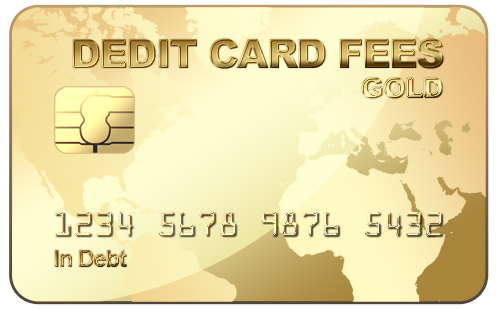Last year congress passed a bill that empowered the Fed to cap the fees large banks charge retailers for debit card transactions. As a result, big banks have lost a significant source of revenue and have responded by increasing the fees they charge their customers.
By now you have probably heard all the commotion caused by Bank of America’s announcement that they will begin charging a $5 monthly fee to all their debit card customers. The fee will go into effect in the new year and it’s reported that other big banks will soon follow. While changing banks is one way to avoid the newly imposed fee, there is nothing preventing your new bank from adding a debit card fee, too.
So here are a few ways you can guarantee you won’t be hit with a debit card fee:

Quick Navigation
Cash
One way to beat the fee is to adopt a cash only policy. This method of money management has been around since the beginning of time and some think it’s the best way to manage your money. The financial guru’s we know and love like Suze Orman and Dave Ramsey both have stated time and time again that using cash is better than using any sort of plastic. There are no interest charges and sometimes just seeing your money leave your wallet is enough to keep your spending in check.
Credit Cards
While some think credit cards are just plain evil, there are may perks to paying for your purchases with a credit card. For one, you can avoid the Bank of America fee and you can also save yourself some money if you use a cash back credit card. Getting the most out of your card requires being responsible with your spending habits and always paying your balance off each month. You can also build your credit with a credit card and many cards offer warranty programs to protect your purchases.
Prepaid Cards
Prepaid cards tend to get a bad wrap. They have a reputation of catering to people with bad credit and those who can’t obtain a traditional bank account. It appears the times are changing and now people of all credit ranges are using prepaid cards as a way to manage their spending. Prepaid cards require the user to load money to the card before making a purchase. As a result, the account can’t be over-drafted because you can only spend the amount on the card. Some of the best prepaid cards come with no or limited fees. And because prepaid cards were excluded from the Fed’s action on debit cards, it’s unlikely that banks will starting increasing the fees on these cards.
Credit Union
Some people swear by Credit Union’s because frequently they offer lower rates and have a tendency to give more personable service than the big banks. Credit Unions are also able to avoid some of the red tape with their long time customers which makes borrowing a much simpler process. They provide many of the same services banks provide, but often with no fees or significantly lower fees.
This is a guest post from Michal who is a senior editor at Dough Roller and Credit Card Offers IQ.
I would consider moving everything into a credit union if the national banks force me to. Prepaid cards are an option, but some have more fees than 5 bucks a month.
I also have seen cards with no ‘annual fee’ only to read the fine print and find out that there was a monthly fee instead.
Maybe Google Wallet and other no swipe options will replace debit cards anyway?
I’d highly recommend moving over to Perkstreet Checking to avoid fees. Not only am i not paying fees, but I’m also getting 2% cash back on all my regular spending!
The solution is easy, but the execution is hard.
Bank of America also just started charging me for my personal and business savings accounts as well as my business checking which used to be free for having a personal account with them too. I cancelled both of my savings accounts, but had to keep the business checking. The Debit card fees have received most of the coverage lately, but I think it’s overshadowing – maybe purposefully by BOA – all of these other account fees that just went into place on the 14th.